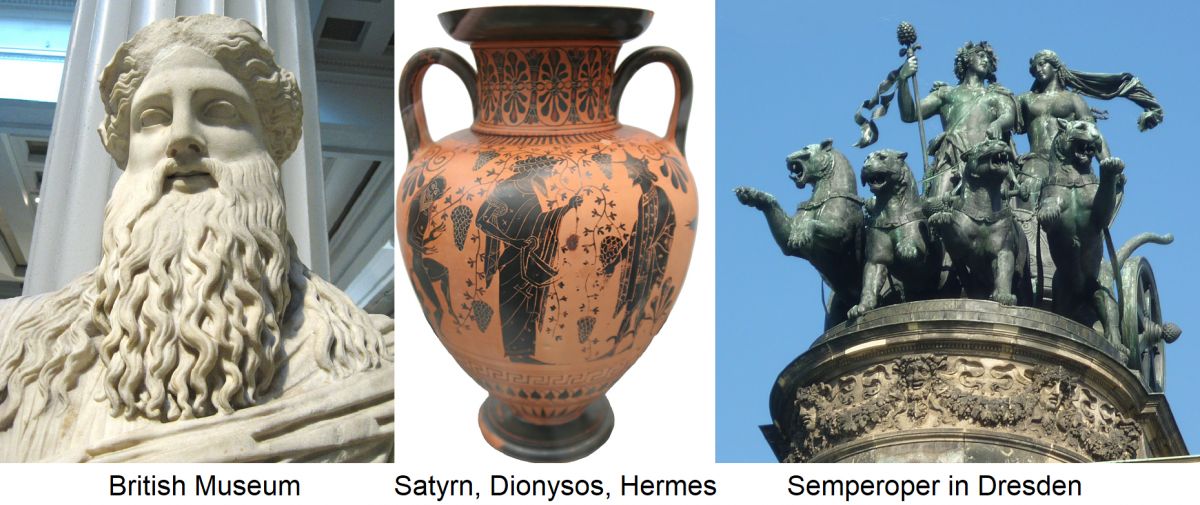Female companions of the wine god Dionysos; see there.
Dionysos
Greek god of vegetation, viticulture and ecstasy or intoxication. He was also called Bromios (noisy) or Bakchos (shouting) because of the noise his entourage made. From this derives the name Bacchus, which is common in Roman mythology. He is usually depicted with ivy or vine tendrils and grapes. His external attributes are the thyrsos staff wreathed with ivy and vines as a symbol of fertility and the kantharos (drinking vessel for wine) shown in the centre of the picture, on which Dionsysus is depicted with a satyr (left) and in conversation with Hermes, the messenger of the gods (right). Dionysus also holds such a kantharos in his right hand. Dionysus' female companions were the Maenads. The oldest mention of him dates from the 13th century BC, although there are several different versions of his birth and life story.

Divine fling
According to the most common version, Zeus begot Dionysus with the beautiful Semele, daughter of Kadmos, king of Thebes. This divine affair is considered to be the founding act of the wine-growing culture in Greece. Through intrigues of Zeus' jealous wife Hera, Semele was unintentionally killed by Zeus by showing himself to her in all his splendour at her express wish, thereby burning her. Zeus removed the still unborn Dionysus from her womb and left him to ripen in his hips for another three months. To protect him from Hera, he grew up in a cave and was educated by nymphs. As an adult, however, he was discovered by Hera and struck with madness, so that he wandered aimlessly in the world, reaching as far as Egypt and Syria. Eventually he was cured by the Titaness Rhea.
On his way to Italy,...
Voices of our members

In the past, you needed a wealth of encyclopaedias and specialist literature to keep up to date in your vinophile professional life. Today, Wine lexicon from wein.plus is one of my best helpers and can rightly be called the "bible of wine knowledge".
Prof. Dr. Walter Kutscher
Lehrgangsleiter Sommelierausbildung WIFI-Wien